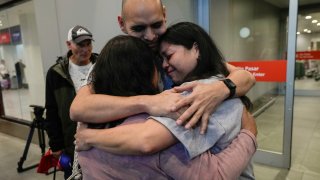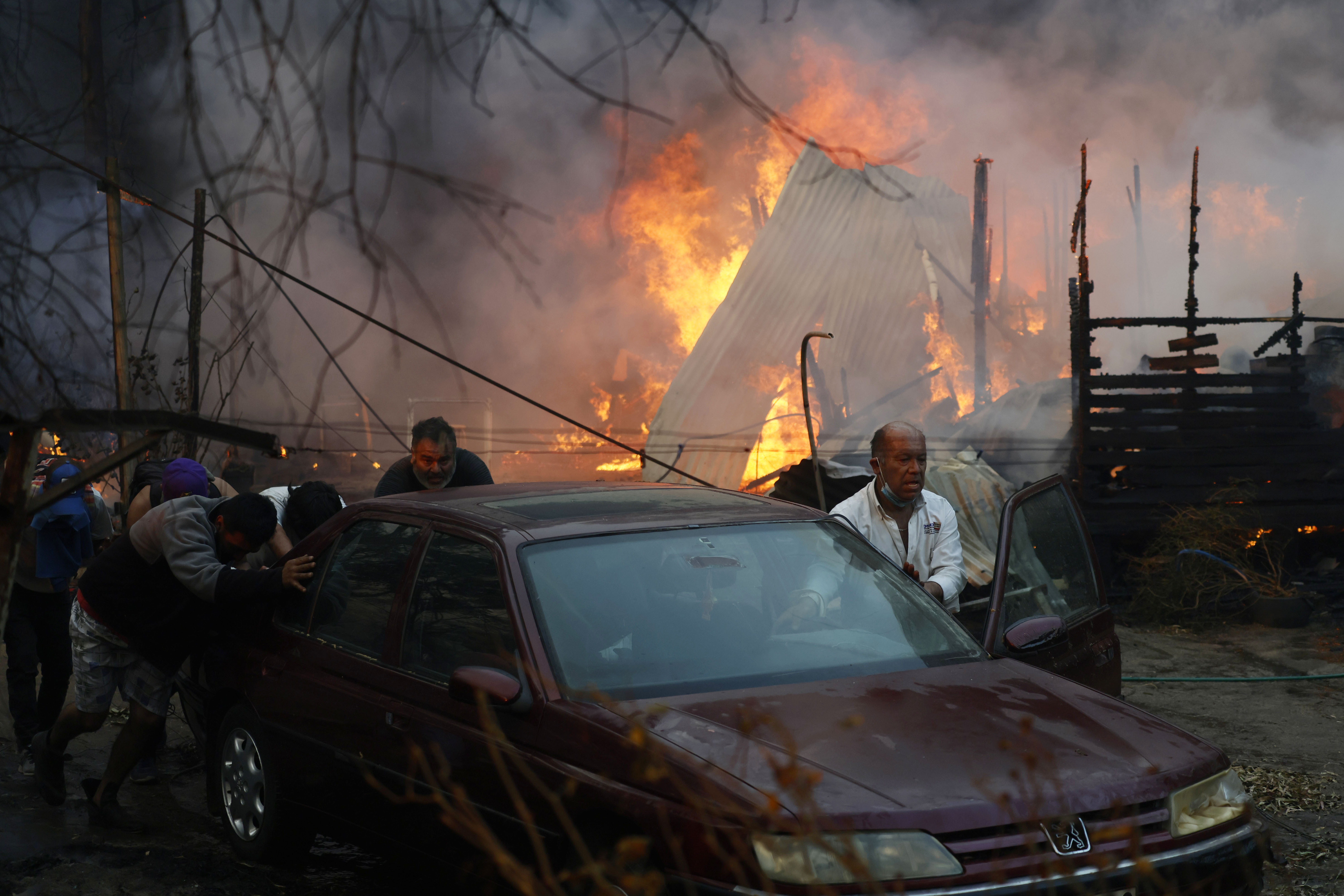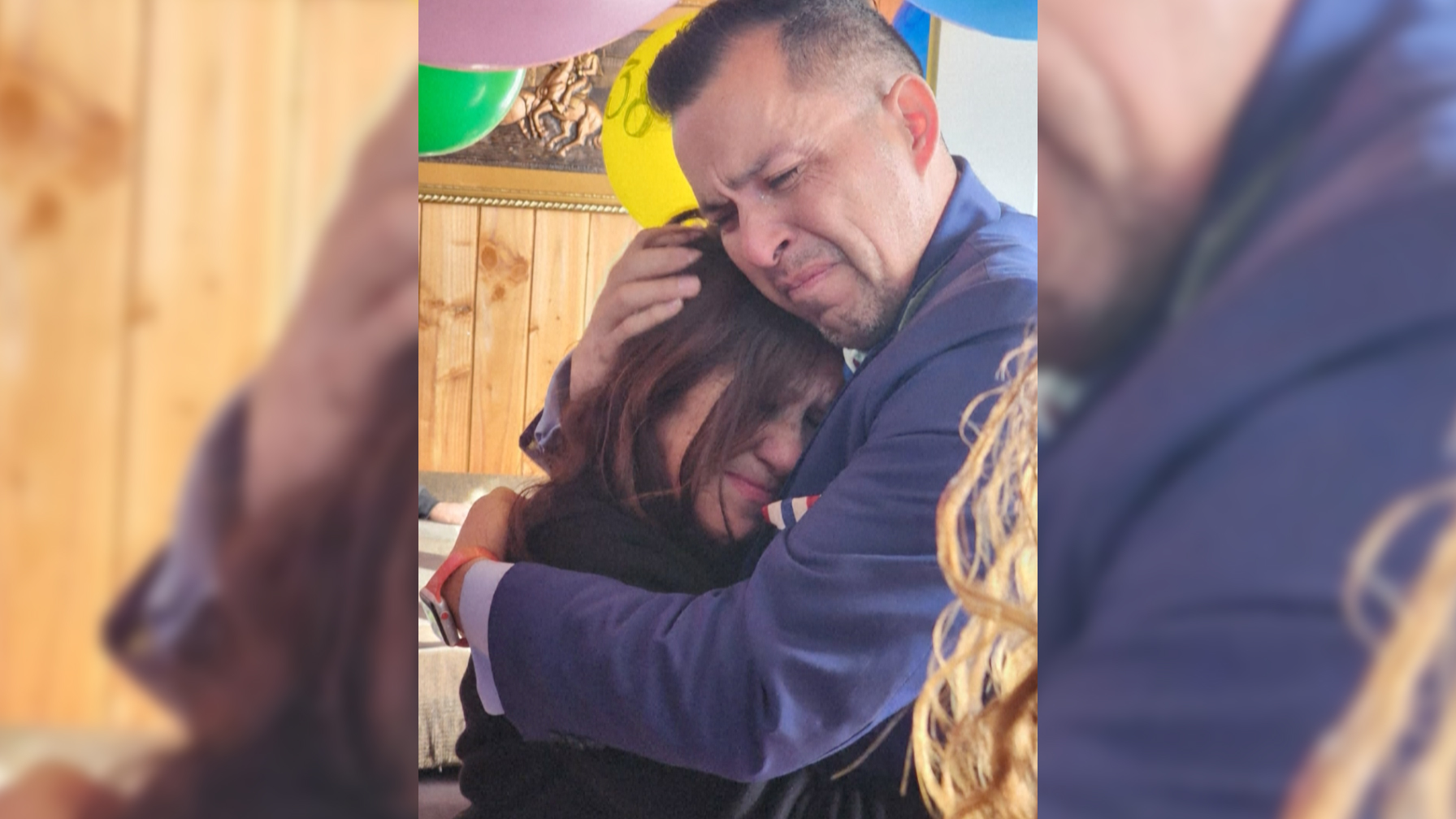
Romina Cortés couldn't pronounce her sister’s last name. She didn’t know what she smells like, what her favorite food is, or what she likes to do in her free time.
Cortés, 43, waited impatiently Sunday at the airport in Santiago, Chile, where she would soon meet her sister, Maria, whose existence Cortés learned of just a month ago.
That's because Cortés’ sister, María Hastings, was one of thousands of Chilean children trafficked or illegally put up for adoption over the last 60 years or so, most during the dictatorship of Augusto Pinochet from 1973-1990.
“I am overwhelmed, so happy to meet my biological family,” Hastings said as soon as she stepped off the plane from Tampa, Florida. “I’m going to reconnect with them, learn who they really are and let them know who I am.”
We're making it easier for you to find stories that matter with our new newsletter — The 4Front. Sign up here and get news that is important for you to your inbox.
The illegal adoptions — 20,000 of which are being investigated by Chilean justice officials and other social groups — extend back to the 1960s. Largely poor, young and indigenous women in vulnerable situations were either forced to give up their children or were told they died shortly after childbirth.
Now, families like the Cortés' are finally reuniting after decades.
Cortés' mother, a woman from the countryside, came to work in the city “without knowing how to read or write.” Without any support, her mom ended up on the street and was coerced into putting her baby up for adoption after she was born in 1987.
“They forced her to sign a document that she didn’t know what it was, since she was illiterate," Cortés said. “For some reason, because of the pain she was carrying she didn’t tell me before.”
But last month, to the hairstylist's surprise, she added a sister and a nephew to her life. “When I saw her on Zoom I said, ‘She looks like me. She has my same eyes and my same nose,’" said Cortés.
Eyes fixed on the terminal doors Sunday, Cortés felt a rollercoaster of emotions. Eager to hug her sister, she said she is trying to learn English to better communicate with her, but that all she knows how to say is “yes.”
Hastings was told as a child that she was adopted, but a few months ago discovered she was part of a child abduction network with branches around the world, including the United States, France, the Netherlands and Sweden.
On Sunday she wrapped her arms around five members of her new family, among them her crying mother, who preferred to remain anonymous but said she knew this day would come.
Hastings said she is learning Spanish to connect with a part of herself that remained dormant all this time.
Hastings said she didn't initially want to search for her family until she read a news article about the trafficked children, which led her to connect with Connecting Roots.
It's one of several organizations that bring together children illegally trafficked from Chile, especially those in the U.S.
The trafficking network was vast, including foster homes, hospitals, hotels, social workers, nurses, doctors, lawyers, judges, and diplomats “who participated in this criminal enterprise under the protection of the State,” said Juan Luis Insulza, the vice president of Connecting Roots.
Foreigners received or marketed the trafficked infants, the organization said. In most cases the adoptive families were also deceived about the illegal origin of the babies.
Ben Frutcher was one of seven people on the flight to Chile on Sunday, excited to connect with his seven siblings and 14 nieces and nephews. He came with his adoptive father, who had encouraged him to search for his birth family.
“I'm going to need a lot more memory with all these new names," he joked as his family hugged and cried, wrapping him in a Chilean flag.
From the moment he first saw a photo of the family, Frutcher could see their shared features, noting everyone says he looks like his biological father. His mother died 23 years ago, plagued with the grief of never knowing her son.
He said he plans to travel to his family's central Chilean town of Chillán.
The family searched intensively for Frutcher for more than 33 years since the start of social media, said Vladimir Figueroa, 39, one of Frutcher's eight siblings. But they found no trace of him because they searched under his Chilean name. Their brother's absence hung over their home.
Connecting Roots was born when firefighter Tyler Graf met his Chilean friend Insulza during training in Houston. Graf knew he was adopted and his family was from Chile, but only began to investigate with the help of Insulza, who began to look for Graf's family in Chile.
Years later, they learned that Graf's biological mother was told that her son was stillborn at the hospital. The truth “was much more sinister than we had been told,” Graf said, saying the official version was that his mother's family was too poor to support him.
Soon, scores of new cases popped up and fellow firefighters and others helped facilitate DNA tests and more information. The organization has raised funds to help connect 36 families to date.
Graf said that while the organization tries to offer emotional support, “nothing can prepare you” for a moment as powerful as walking through this door and having that family embrace you.



